Sehba Sarwar on Houston's Voices Breaking Boundaries
October writer-in-residence Sehba Sarwar blogs about P&W-supported Voices Breaking Boundaries (VBB), an alternative arts organization. A writer and multidisciplinary artist, Sarwar uses her poetry, prose, and video/art installations to explore displacement and women’s issues on a domestic and global level. Her first novel, Black Wings, was published in 2004, and she is currently working on a second manuscript tentatively entitled "Island."
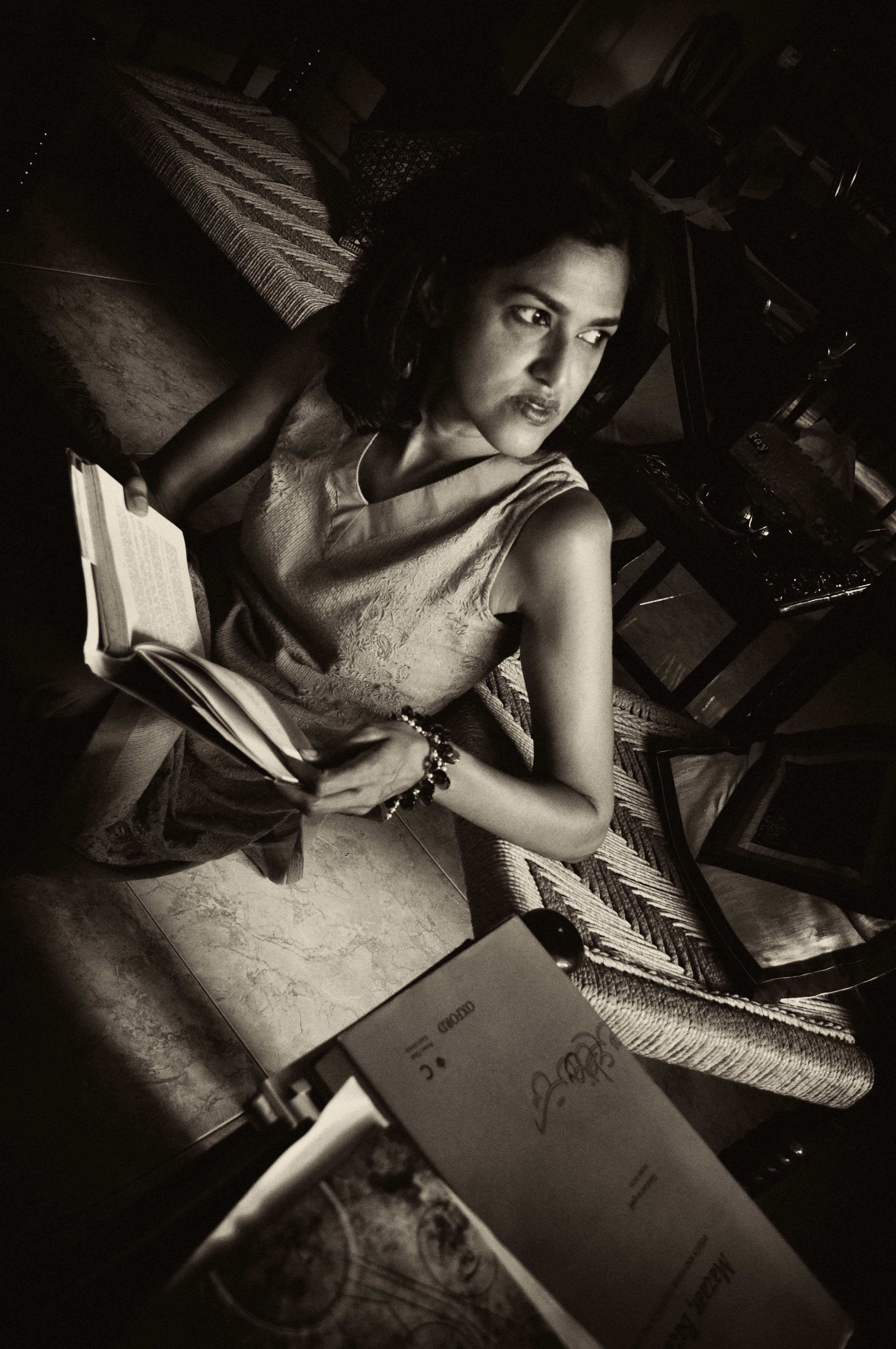 This month, as Voices Breaking Boundaries (VBB) launches our thirteenth season, I’m reminiscing about Fall 1999, when my friend Marcela Descalzi asked if I wanted to do anything before the start of the next millennium. At that time, Houston offered few options for new writers, performance artists, and grassroots activists.
This month, as Voices Breaking Boundaries (VBB) launches our thirteenth season, I’m reminiscing about Fall 1999, when my friend Marcela Descalzi asked if I wanted to do anything before the start of the next millennium. At that time, Houston offered few options for new writers, performance artists, and grassroots activists.
“I want to create a space for artists to share work about issues that matter to us,” I said. “I also want to perform a poem about political events unfolding in Pakistan, my home.”
We formed a collective, inviting three other women writers and artists—Christine Choi, Donna Perkins, and Jacsun Shah—to join us. Dedicating hours in coffee shops, we finally agreed on Voices Breaking Boundaries as our group’s name. Our logo was the globe viewed from the southern Hemisphere. We wanted to offer a new lens through which to experience the world and to create space for artists and audience members from different backgrounds to gather, share art, and learn from one another.
Without thinking of the outcome, I submitted a grant application to the Houston Arts Alliance and was awarded $4,500. We decided to use the funds to print postcards and pay honoraria to artists. Each of us was teaching at that time, so we didn’t pay ourselves even though we performed at the shows. During our first year, we created monthly lineups in a local bookstore, featuring performance poets, academics, high school students, capoeira dancers, and drummers. In February 2001, after our collaboration with the Museum of Fine Arts Houston and Himal South Asia (Nepal) to offer a South Asian film festival, we knew we had to respond to our audience and incorporate VBB into a nonprofit arts organization.
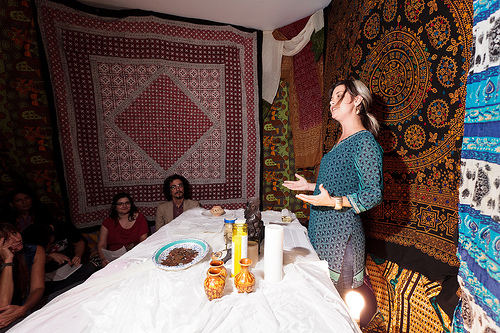 Fast forward to Fall 2012. I’m still writing and now draw a salary as VBB’s salaried artistic director. Over the years, VBB has received free performance and exhibition space and has collaborated with many other organizations, including Arté Publico Press, Project Row Houses, DiverseWorks, and Inprint, Inc., and has featured artists such as Arundhati Roy, Bapsi Sidhwa, and Patti Smith—all while continuing to tackle some of the most controversial issues of our times. We have carved a niche for our unique productions, living room art, through which we convert residential homes into art spaces and use the experience to create connections between Karachi, my home city, and Houston, where I’ve lived for some time. The productions, elaborate one night flares, meld spoken word, music, performance and videos with installations.
Fast forward to Fall 2012. I’m still writing and now draw a salary as VBB’s salaried artistic director. Over the years, VBB has received free performance and exhibition space and has collaborated with many other organizations, including Arté Publico Press, Project Row Houses, DiverseWorks, and Inprint, Inc., and has featured artists such as Arundhati Roy, Bapsi Sidhwa, and Patti Smith—all while continuing to tackle some of the most controversial issues of our times. We have carved a niche for our unique productions, living room art, through which we convert residential homes into art spaces and use the experience to create connections between Karachi, my home city, and Houston, where I’ve lived for some time. The productions, elaborate one night flares, meld spoken word, music, performance and videos with installations.
And around us, more communities of color and artist initiatives have sprung up. Any given weekend, one can cull from an array of choices to experience art. The city is “minority-majority,” serving as a prediction of demographic shifts across the United States. There’s still much work to be done and sometimes I feel challenged by how often we circle back to the same issues: immigrant rights, women’s reproductive rights, education awareness, racial stereotyping, and the United States' role in global conflicts. But at the same time, I’m grateful for the support VBB continues to receive from arts organizations like Poets & Writers. Looking back at 1999, I couldn’t have predicted where our collective would land. I do know, however, that in the wide expanse of Houston, the United States, and the world, there’s room for many more artist initiatives—and that our story speaks to the urgent need for more alternative voices to converge.
Photos: (Top) Sehba Sarwar. Credit: Emaan Reza. (Bottom) Fall 2011 living room art production Third Worlds: Third Ward/Karachi. Credit: Eric Hester.
Support for Readings/Workshops events in Houston is provided by an endowment established with generous contributions from the Poets & Writers Board of Directors and others. Additional support comes from the Friends of Poets & Writers.





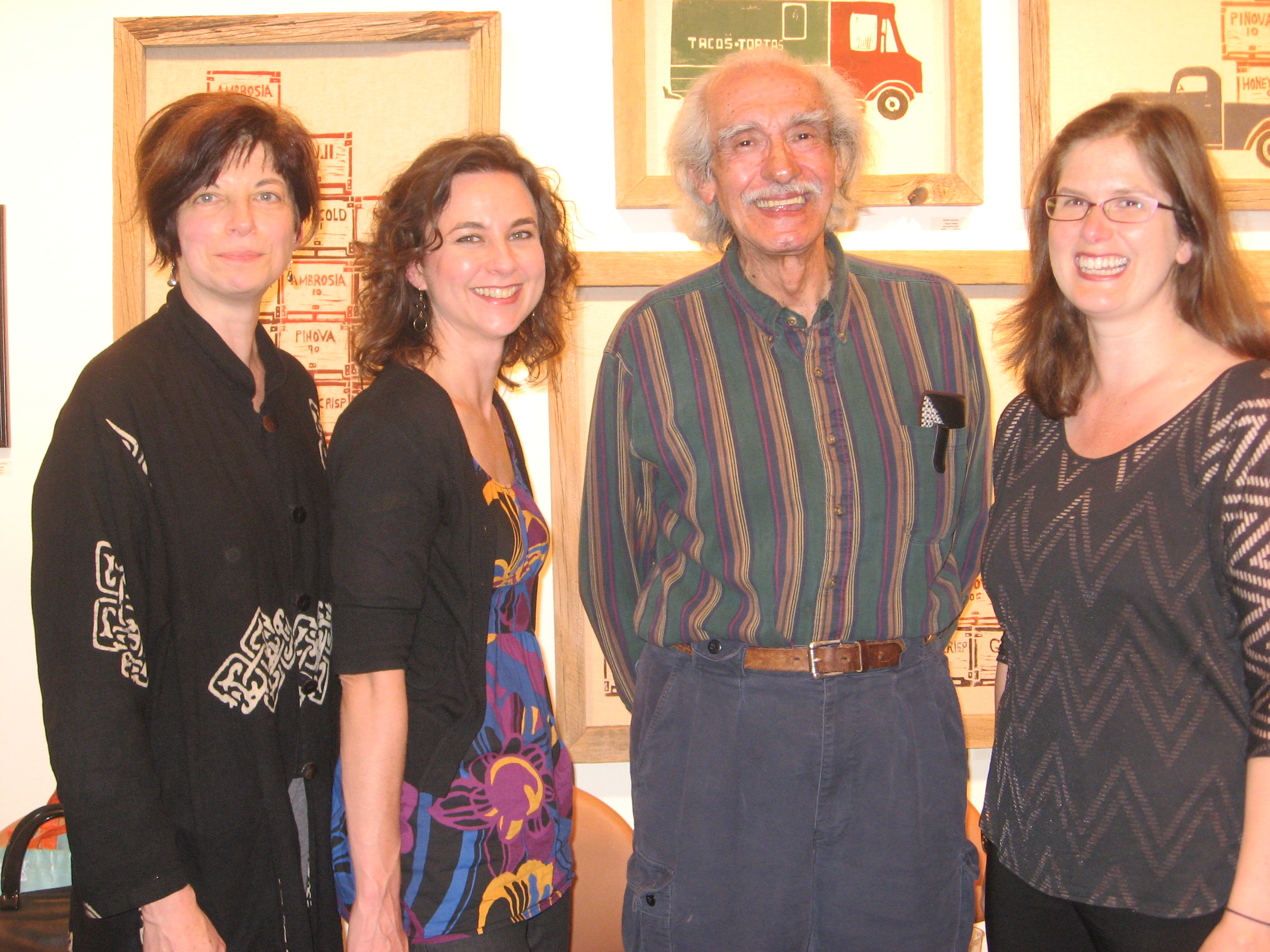 On a hot summer evening in Seattle, four writers presented new works responding to Rooted: Latino/a Artists’ Connection to Native and Adopted Lands, an art exhibit at Seattle’s Columbia City Gallery. The exhibit, a partnership between Columbia City Gallery and La Sala, a nonprofit Latino/a artists’ network, brought together regional visual artists and writers exploring themes of roots, family, identity, and home.
On a hot summer evening in Seattle, four writers presented new works responding to Rooted: Latino/a Artists’ Connection to Native and Adopted Lands, an art exhibit at Seattle’s Columbia City Gallery. The exhibit, a partnership between Columbia City Gallery and La Sala, a nonprofit Latino/a artists’ network, brought together regional visual artists and writers exploring themes of roots, family, identity, and home.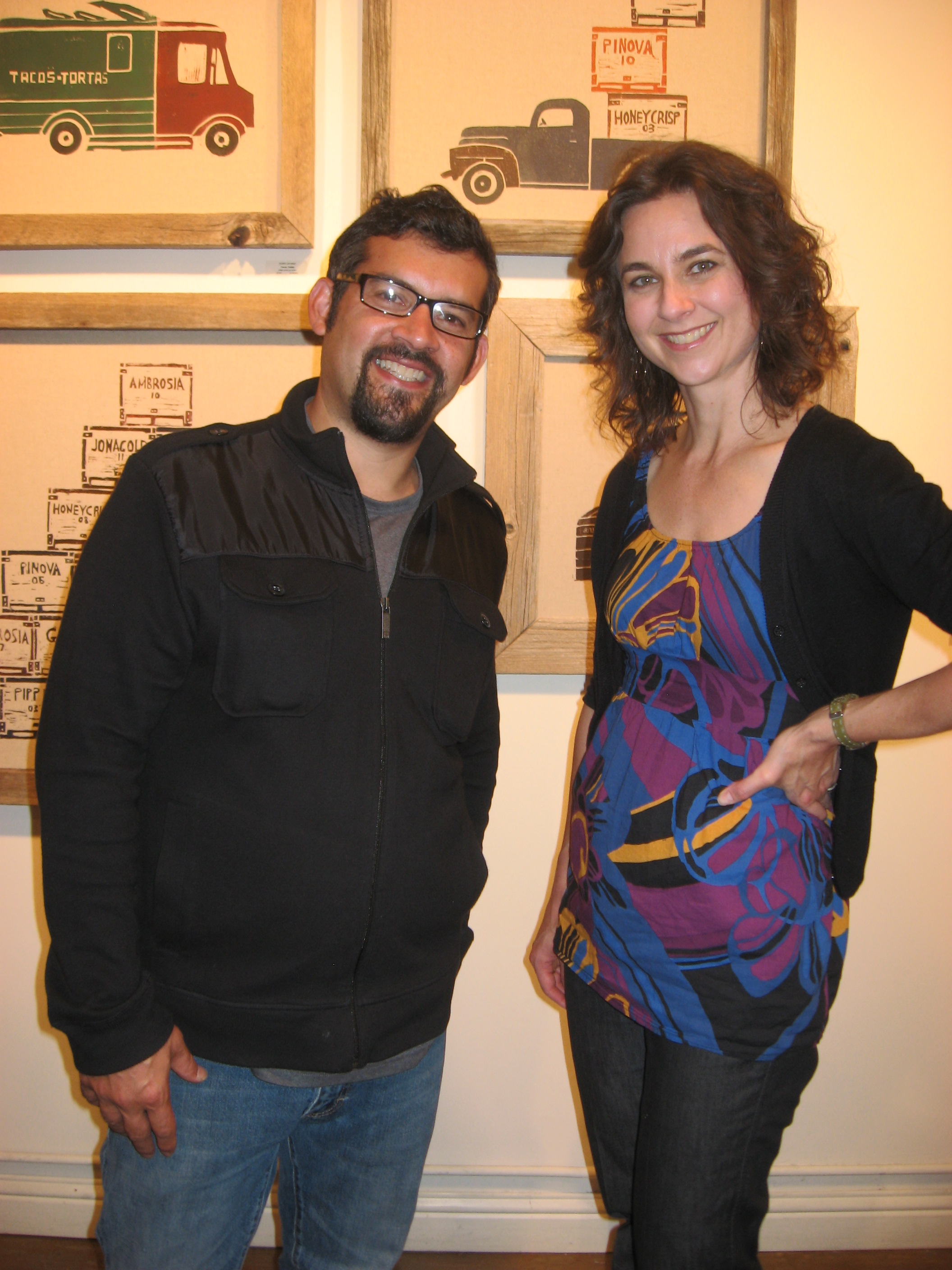 “Hello, my name is
“Hello, my name is 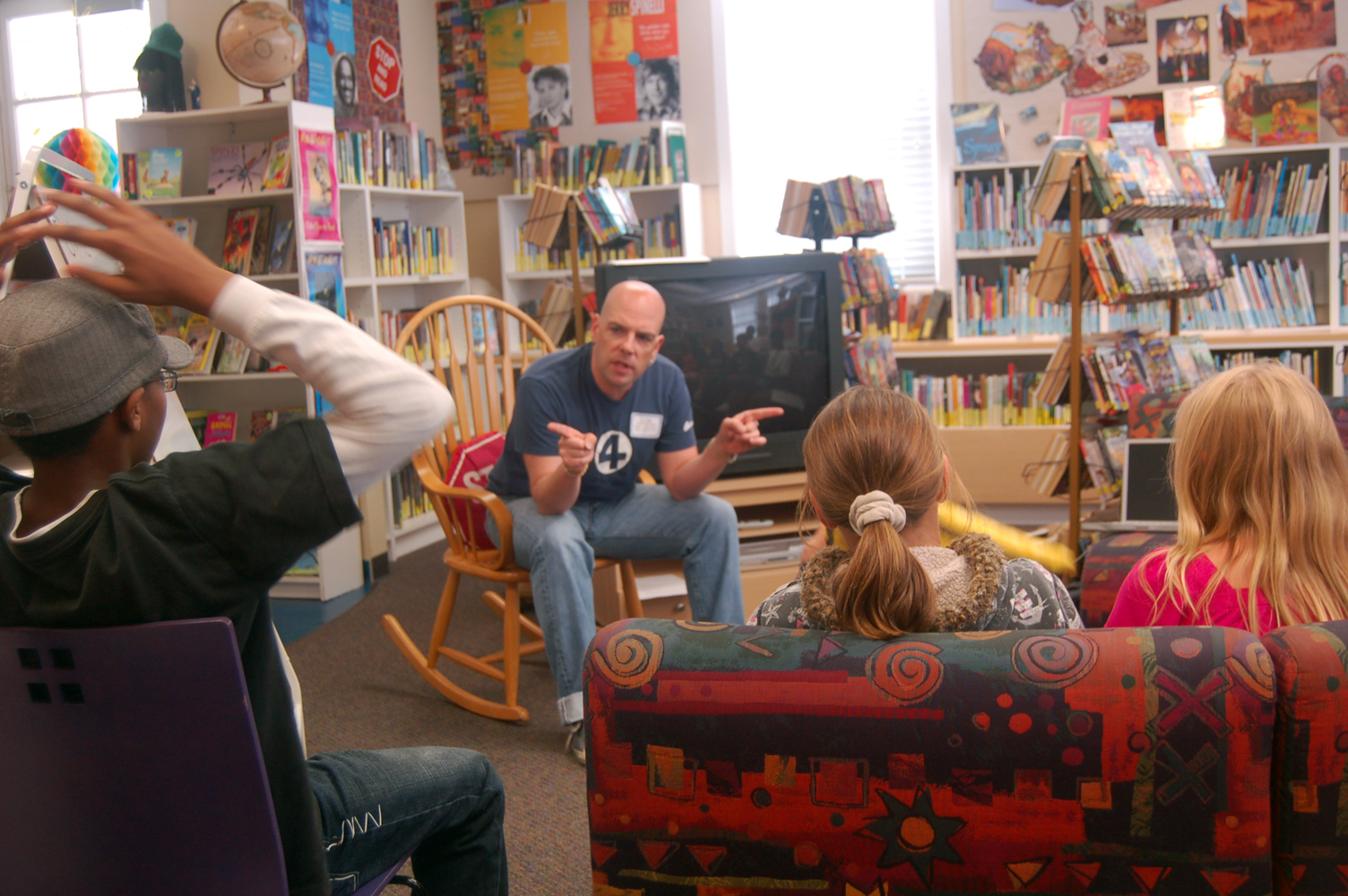 How do you do? Brendan Constantine here with my last blog as “writer in residence” for P&W. Thanks for visiting with me today.
How do you do? Brendan Constantine here with my last blog as “writer in residence” for P&W. Thanks for visiting with me today.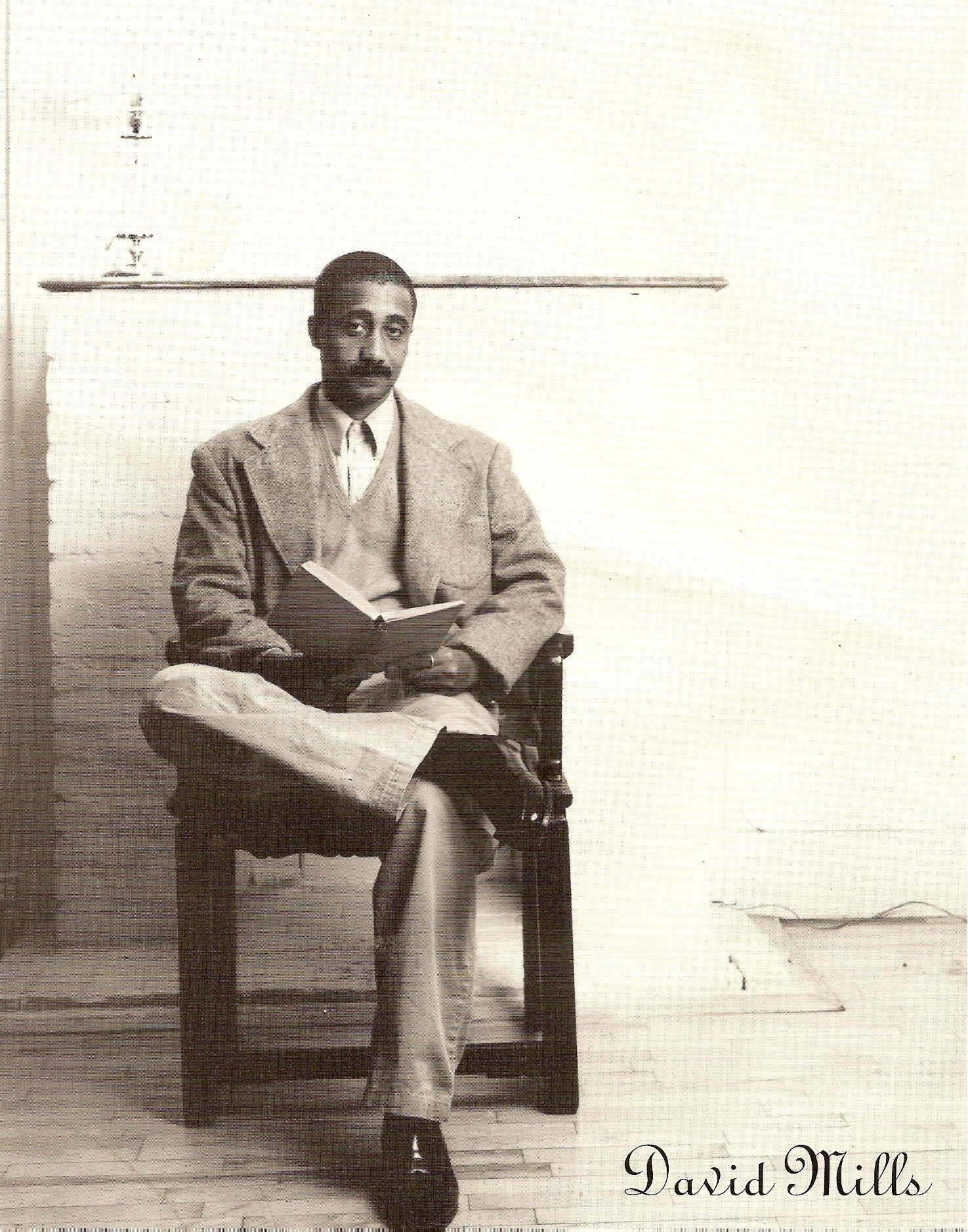 What is your writing critique philosophy?
What is your writing critique philosophy?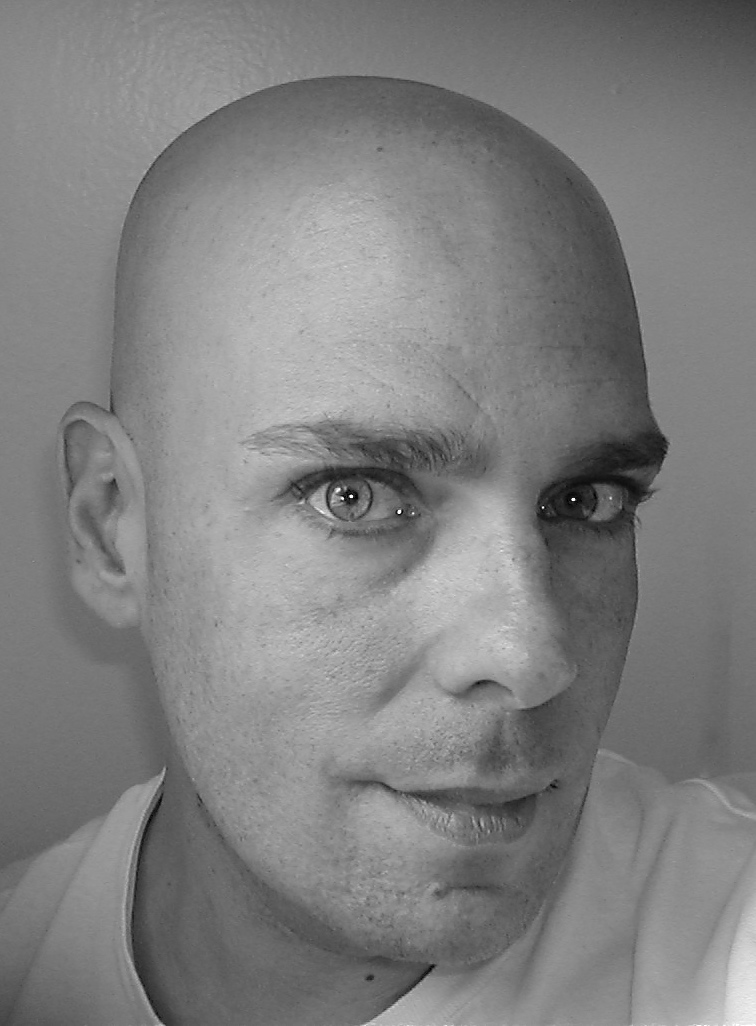 How do you do? Brendan Constantine here with the third “blog” of my residency with Poets & Writers. Thanks for joining me.
How do you do? Brendan Constantine here with the third “blog” of my residency with Poets & Writers. Thanks for joining me.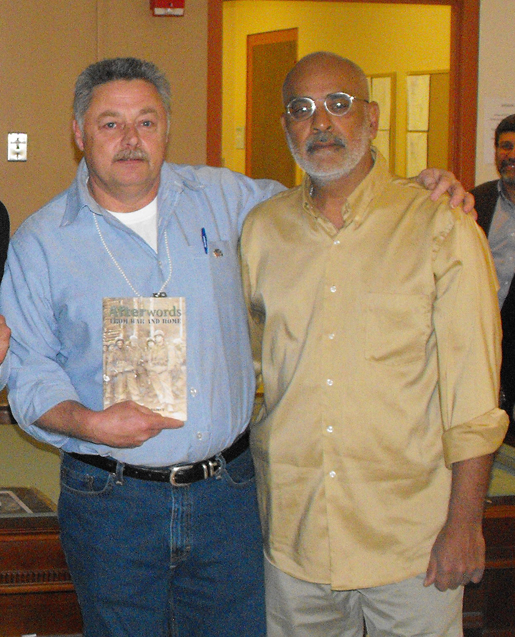
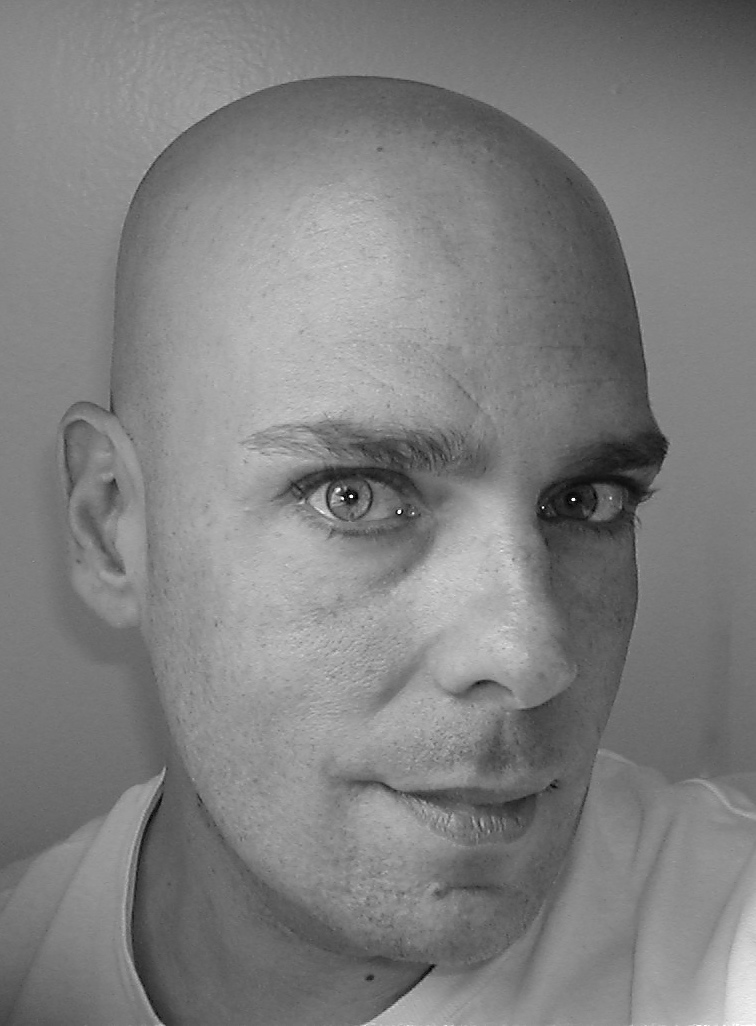 If only I could embrace the maxim I use in the classroom: Writer’s Block is almost never a deficit of magic but a surplus of judgment. I believe this, I do, but I'm still stuck. This is particularly ironic because what I want to talk about is Speechlessness; a speechless woman and a speechless universe. Maybe I can get this rolling if I work backwards and start with the universe.
If only I could embrace the maxim I use in the classroom: Writer’s Block is almost never a deficit of magic but a surplus of judgment. I believe this, I do, but I'm still stuck. This is particularly ironic because what I want to talk about is Speechlessness; a speechless woman and a speechless universe. Maybe I can get this rolling if I work backwards and start with the universe.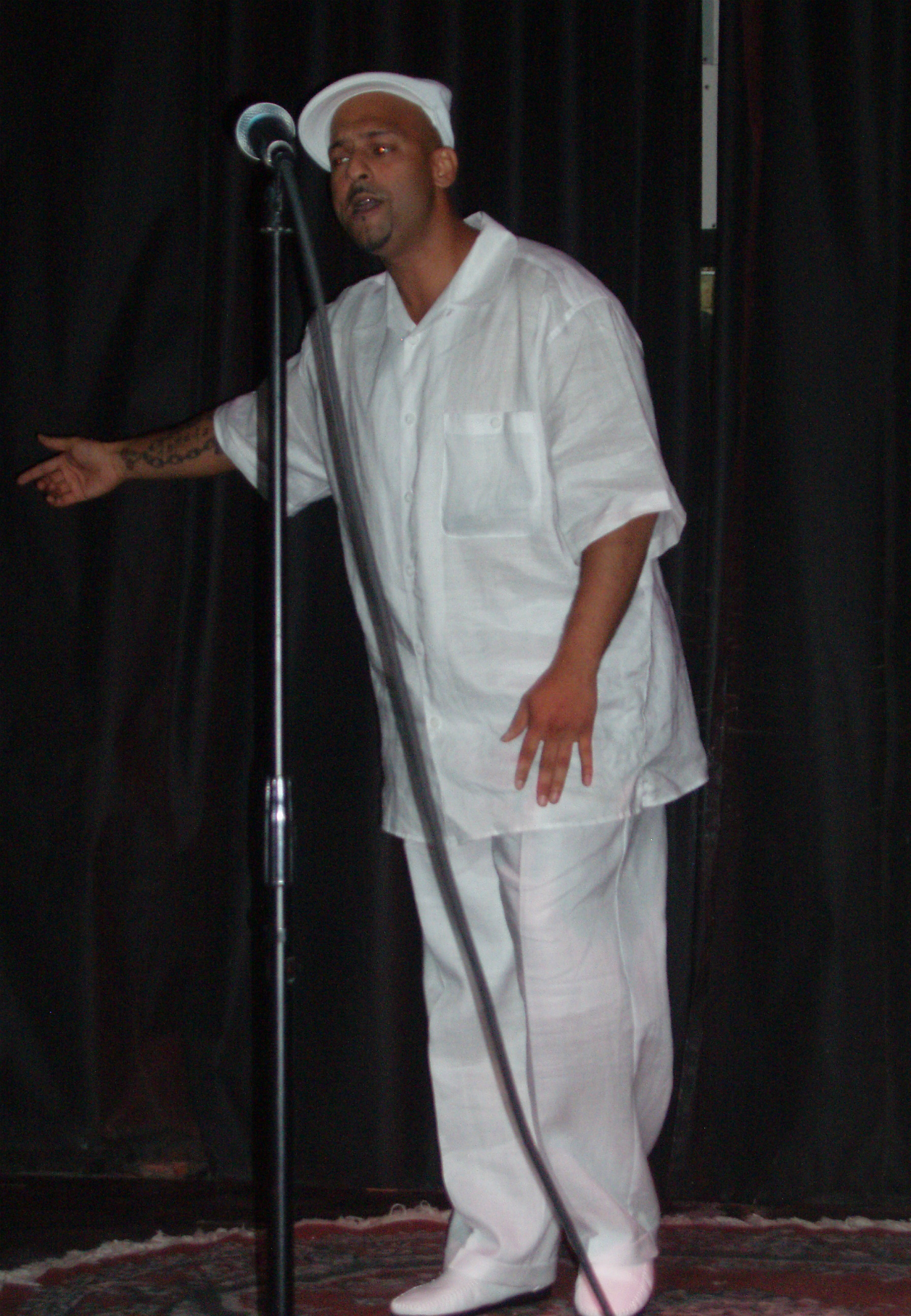 Dances With Wordz: Orisha Poetry, curated by Latinos NYC founder and CEO Raul K. Rios, featured performances celebrating the Yuroba faith of West Africa. The poets, garbed in white from head to toe, were an immaculate presence inside the
Dances With Wordz: Orisha Poetry, curated by Latinos NYC founder and CEO Raul K. Rios, featured performances celebrating the Yuroba faith of West Africa. The poets, garbed in white from head to toe, were an immaculate presence inside the 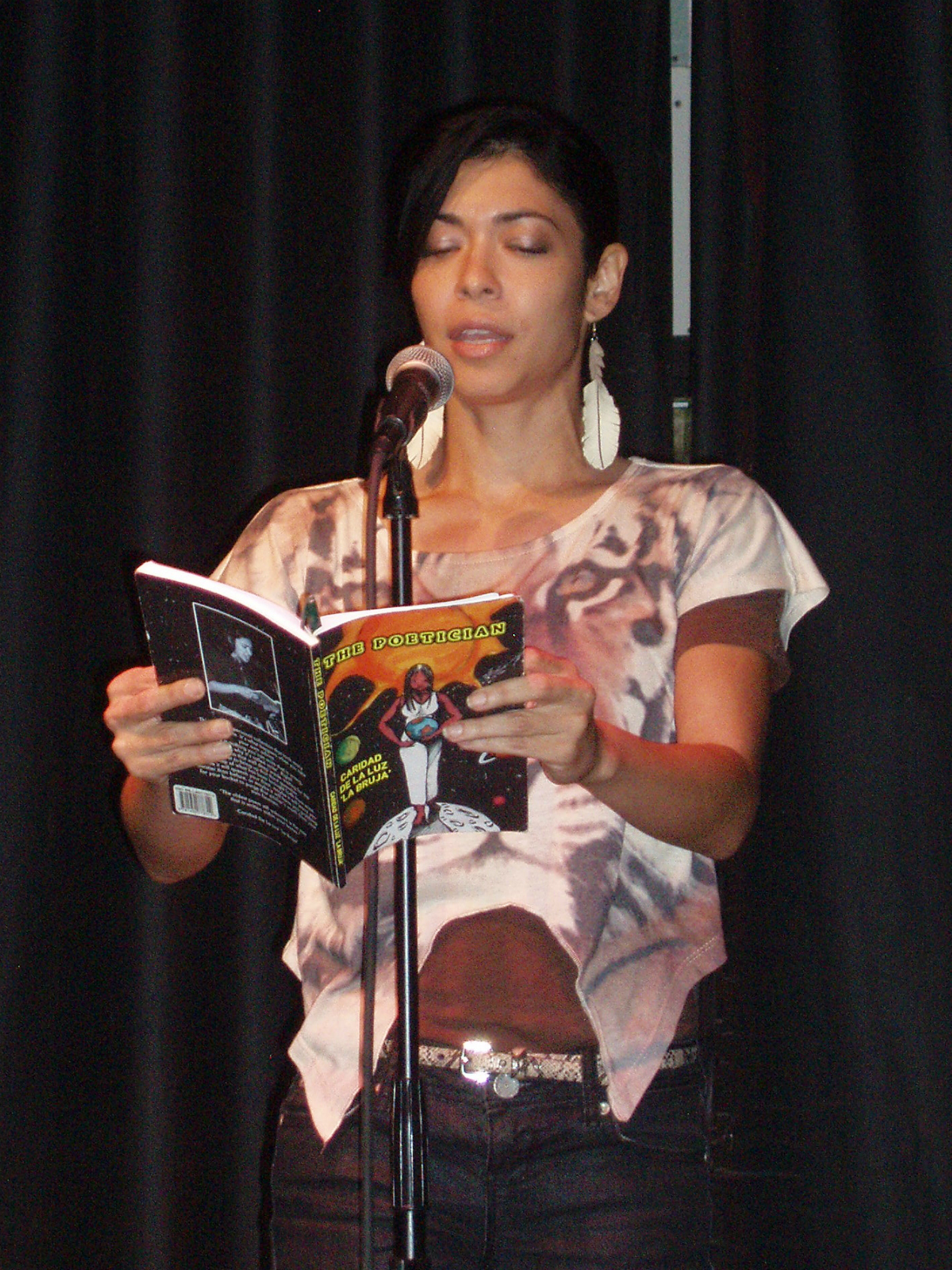 Nuyorican darling Caridad “La Bruja” De La Luz read from her first collection, The Poetician, then proceeded to rap and sing after reciting what she fondly called “straight up poetry.” Writer, actor, and painter Iya Ibo Mandingo performed last, conjuring images of home: luscious mangoes and coconuts. He ended his performance with a declarative poem, inciting reactions from the audience, which ranged from the gleeful to the guttural.
Nuyorican darling Caridad “La Bruja” De La Luz read from her first collection, The Poetician, then proceeded to rap and sing after reciting what she fondly called “straight up poetry.” Writer, actor, and painter Iya Ibo Mandingo performed last, conjuring images of home: luscious mangoes and coconuts. He ended his performance with a declarative poem, inciting reactions from the audience, which ranged from the gleeful to the guttural. 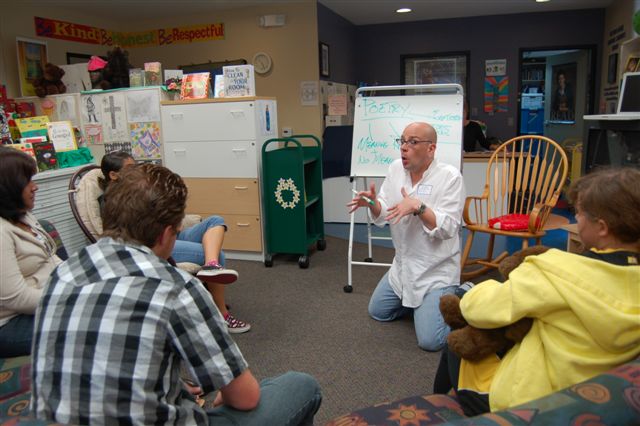 How do you do. My name is Brendan Constantine and I’m a poet living in Hollywood, California. As I write this, there are two people arguing in the street beyond my window. One of them just shouted, “It’s not religious, it’s my God damn parking space.”
How do you do. My name is Brendan Constantine and I’m a poet living in Hollywood, California. As I write this, there are two people arguing in the street beyond my window. One of them just shouted, “It’s not religious, it’s my God damn parking space.”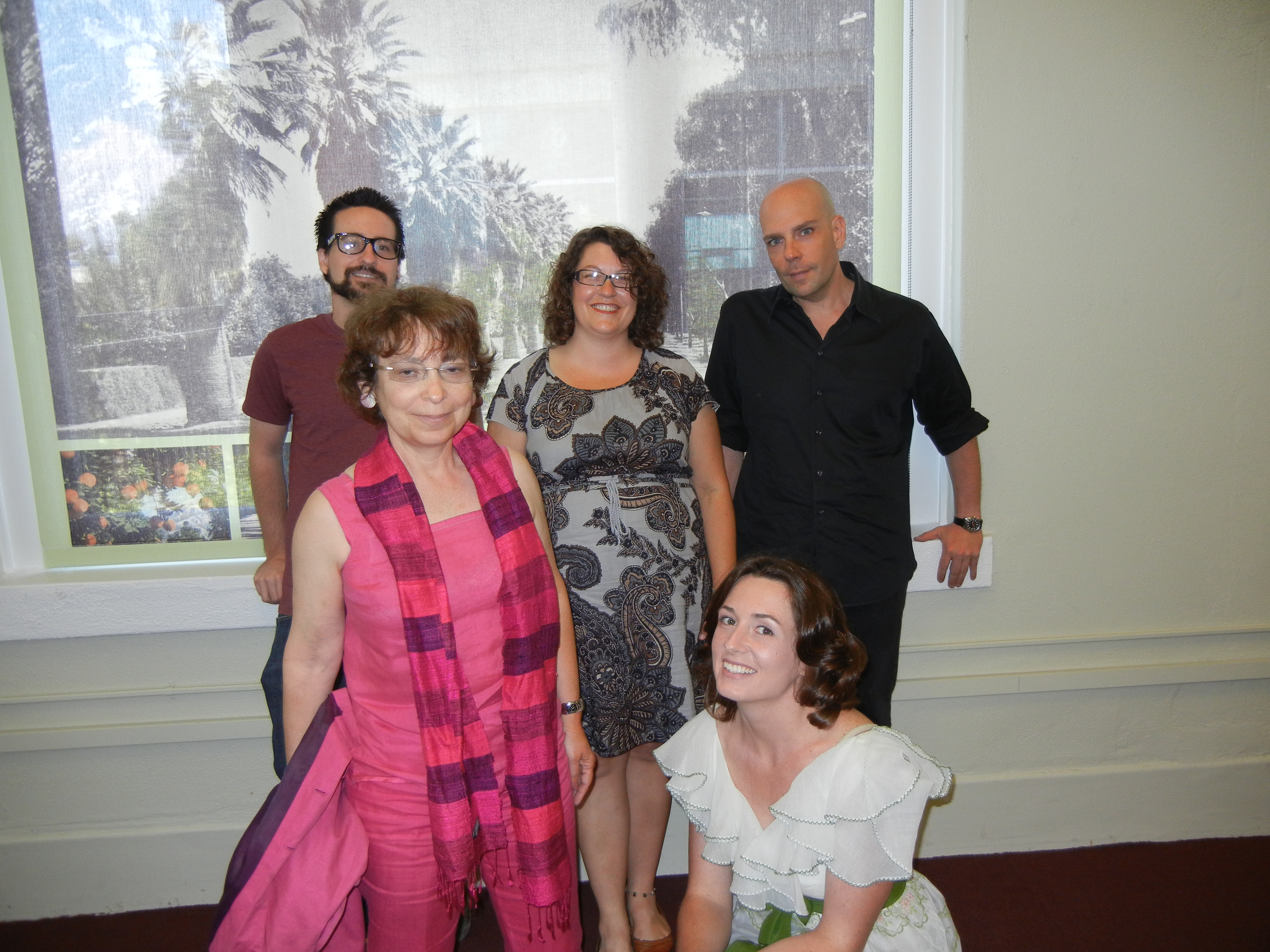 For a number of years now, I had been contemplating the fact that there is no regularly occurring literary reading series in Riverside, California. This is not to say that there aren’t the occasional events, including an annual
For a number of years now, I had been contemplating the fact that there is no regularly occurring literary reading series in Riverside, California. This is not to say that there aren’t the occasional events, including an annual 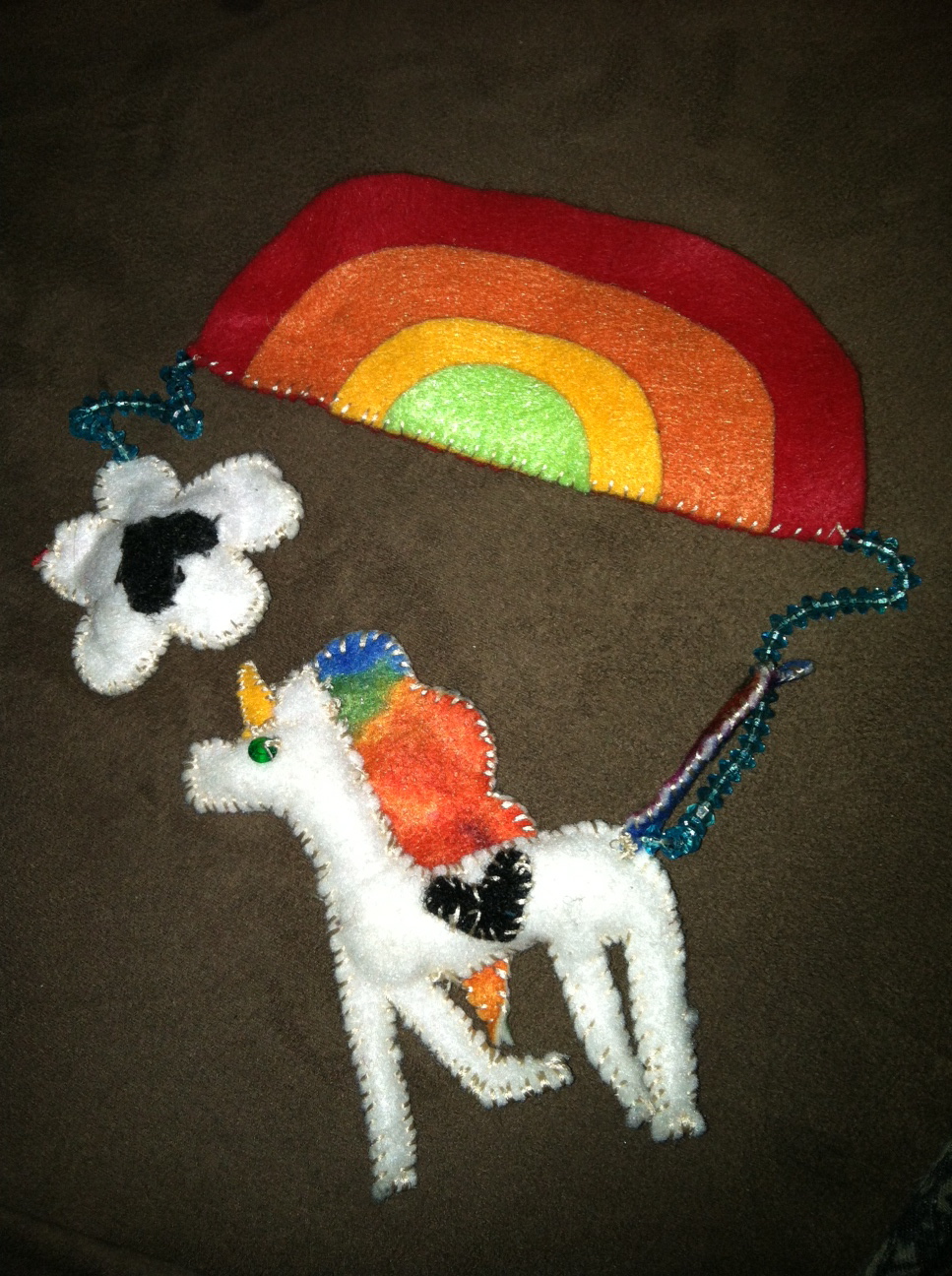 Then Nicelle Davis read; I say read, but really, “audience engagement” is a more accurate description of what occured. Drawn from her collection Circe, which retells The Odyssey, Davis used puppets and props to invite readers to pluck the heart out of Odysseus the Pig, and to gouge out Circe’s eyes and pluck a booger from her nose.
Then Nicelle Davis read; I say read, but really, “audience engagement” is a more accurate description of what occured. Drawn from her collection Circe, which retells The Odyssey, Davis used puppets and props to invite readers to pluck the heart out of Odysseus the Pig, and to gouge out Circe’s eyes and pluck a booger from her nose.